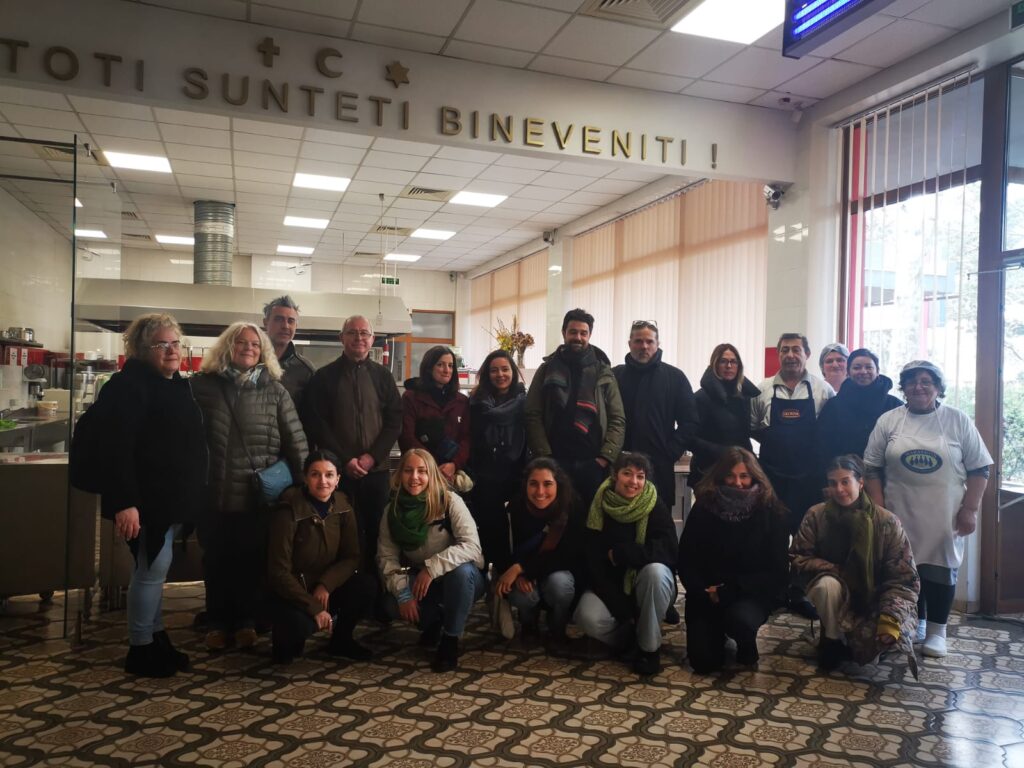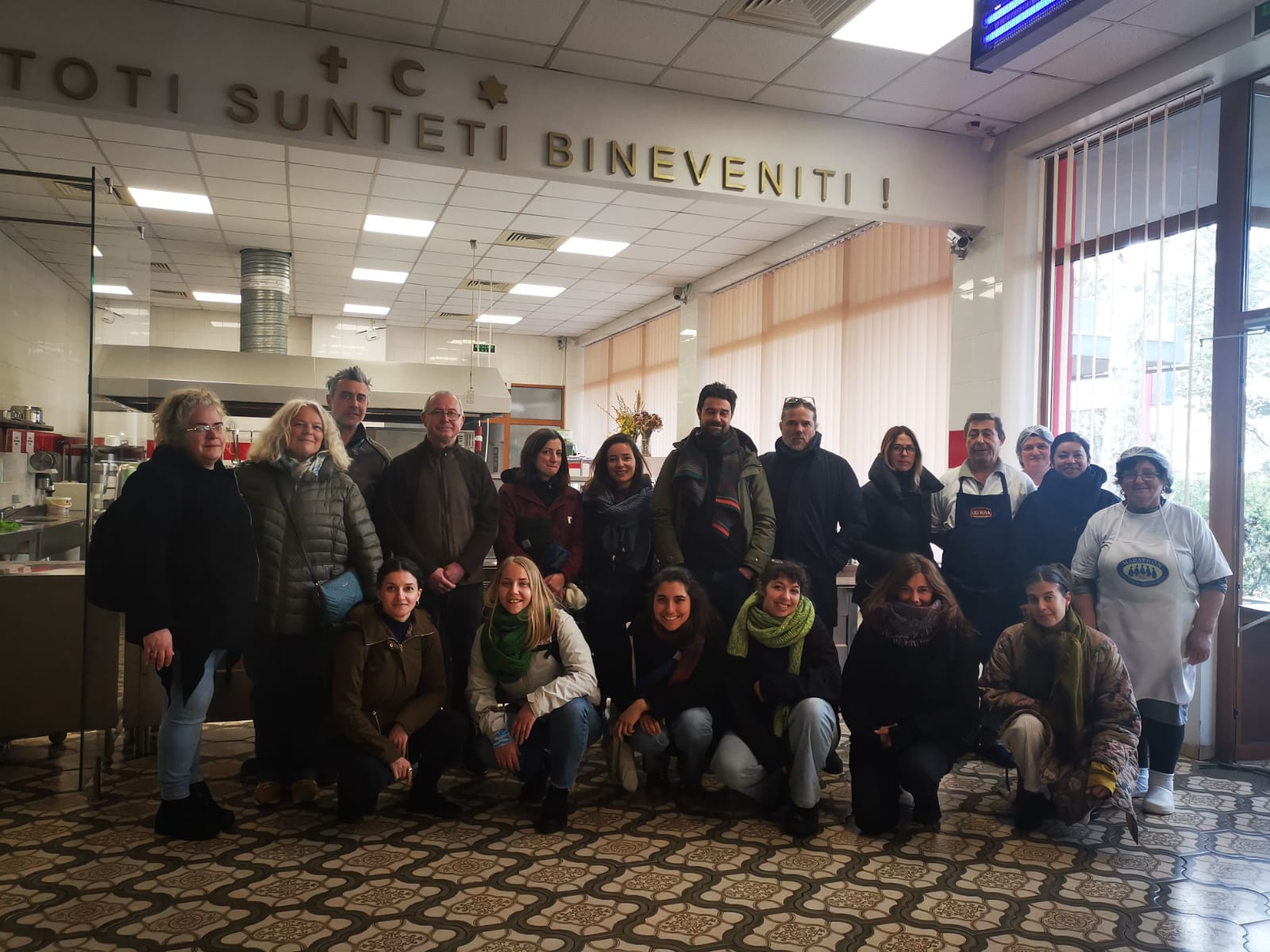A large group of participants is in Bucharest these days for the third of four mobilities planned for the Proximity Health project. The agenda includes many activities to learn about the activities of the Romanian partner Samu Social.
In Romania there are over 15 000 homeless persons 5 000 live in Bucharest, and over 1 000 of them are children. Detailed statistics on this topic are very difficult to obtain because it is a population neglected by the public services available at this time. Access to health care and social services is limited for the homeless population, giving the fact that over 65% of them do not have identity cards and are so desocialized that they have lost the ability to contact the public institutions and other private non-governmental organizations for help.
The supportive services for these people are deficient in quality and quantity Samusocial din România is currently the only organization that offers complex and adapted services for the homeless population in Bucharest, taking into account the needs expressed by the beneficiaries themselves.
The Association Samusocial din Romania and its history was presented, as well as the projects it has in progress: information, counseling and social interventions, medical assistance and counseling, distribution of medicines, counseling and psychological support, nutritional program and distribution of school materials addressed to families with street children, health education, contraception and family planning addressed to street women, information and vocational counseling and facilitating access to qualification courses in order to reintegrate into society for young people on the street, screening program for tuberculosis in partnership with Marius Nasta Institute, hygiene space – social shower, distribution of clothes, food, materials for the cold season.
The specifics of the phenomenon of homeless adults in the Romanian social space – reasons for ending up on the street, lack of minimum medical insurance and access to the health system in Romania conditioned by the presence of a medical insurance, lack of medicines needed for chronic therapies – were also discussed, the collaboration with the Capital City Hall and the sector city halls, the insufficient number of places in night shelters and the restrictive conditions of access in relation to the extent of the homeless phenomenon in Bucharest, the non-existence of shelter spaces for families, second, third and even fourth generation families on the street.
The intense days in Bucharest allowed us to get to know many projects that work in the area, low-threshold services, harm reduction, services aimed at people who have experienced trafficking, homeless people and people who live in very precarious conditions. Among these we mention and thank ASSOCIATION, “ATELIERE FARA FRONTIERE” ASSOCIATION, D.G.A.S.P.C. sector 6- ADULTS NIGHTSHOP, “FRATII CARITATII” MISSION, “MARATHON” SOCIAL CANTINATION, “PARADA” FOUNDATION, ARAS ASSOCIATION.


